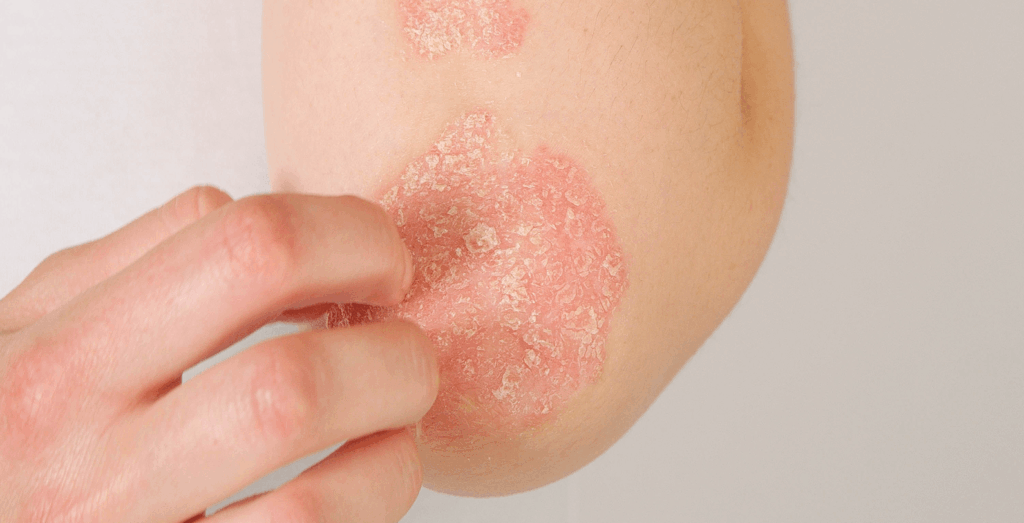Learn more about other conditions we treat

Psoriasis
A chronic inflammatory skin condition that causes the body to produce skin cells more rapidly than normal, leading to the buildup of thick, scaly patches on the skin. Treatment can help reduce underlying inflammation and slow down the overproduction of skin cells.

Hidradenitis Suppurativa
A chronic skin condition that causes painful, inflamed bumps—often in areas where skin rubs together—due to blocked hair follicles and an overactive immune response. Treatment can help reduce inflammation, manage flare-ups, and promote healing of the skin.





